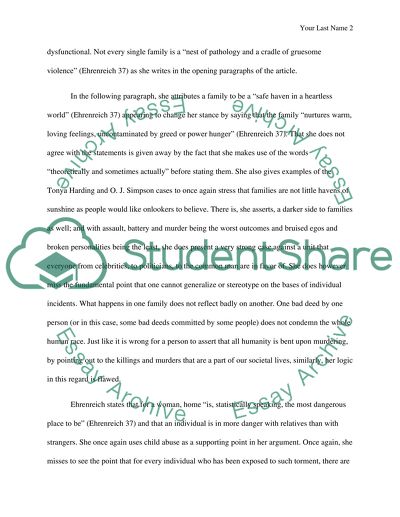Cite this document
(“Are Families Dangerous Literature review Example | Topics and Well Written Essays - 1250 words”, n.d.)
Are Families Dangerous Literature review Example | Topics and Well Written Essays - 1250 words. Retrieved from https://studentshare.org/social-science/1410349-evaluative-essay
Are Families Dangerous Literature review Example | Topics and Well Written Essays - 1250 words. Retrieved from https://studentshare.org/social-science/1410349-evaluative-essay
(Are Families Dangerous Literature Review Example | Topics and Well Written Essays - 1250 Words)
Are Families Dangerous Literature Review Example | Topics and Well Written Essays - 1250 Words. https://studentshare.org/social-science/1410349-evaluative-essay.
Are Families Dangerous Literature Review Example | Topics and Well Written Essays - 1250 Words. https://studentshare.org/social-science/1410349-evaluative-essay.
“Are Families Dangerous Literature Review Example | Topics and Well Written Essays - 1250 Words”, n.d. https://studentshare.org/social-science/1410349-evaluative-essay.


